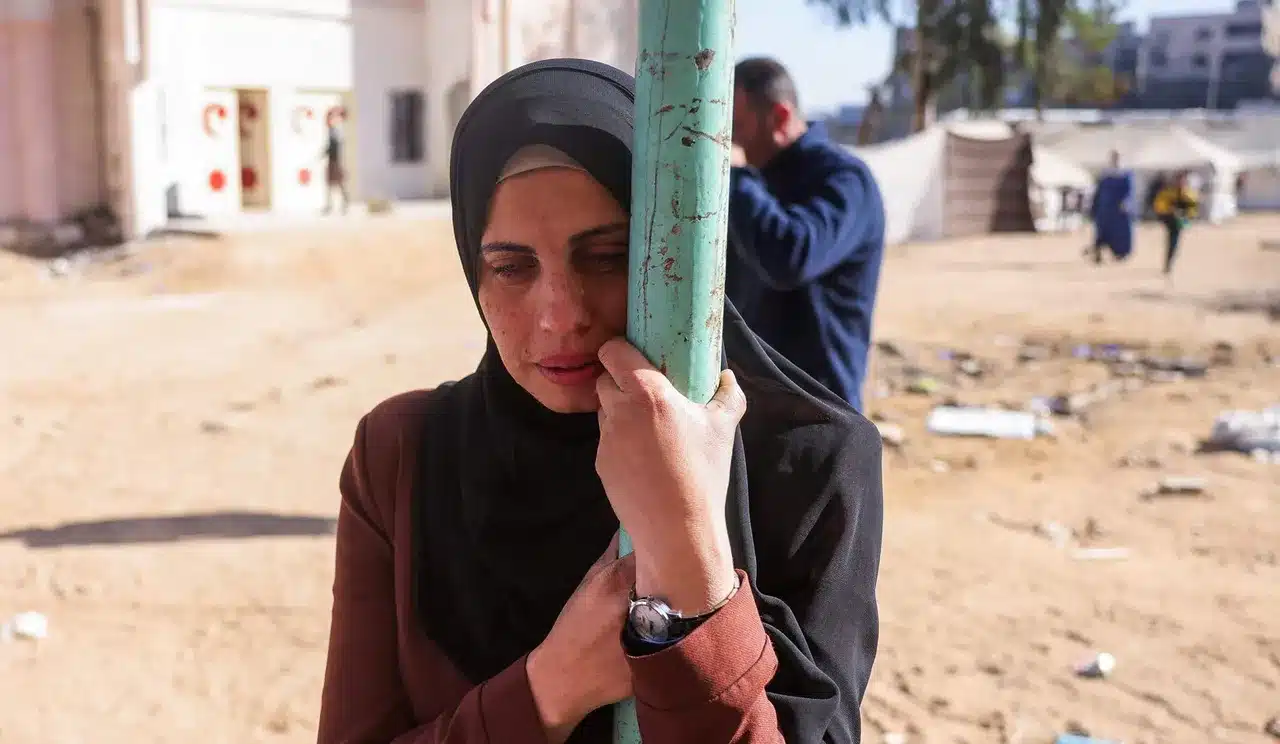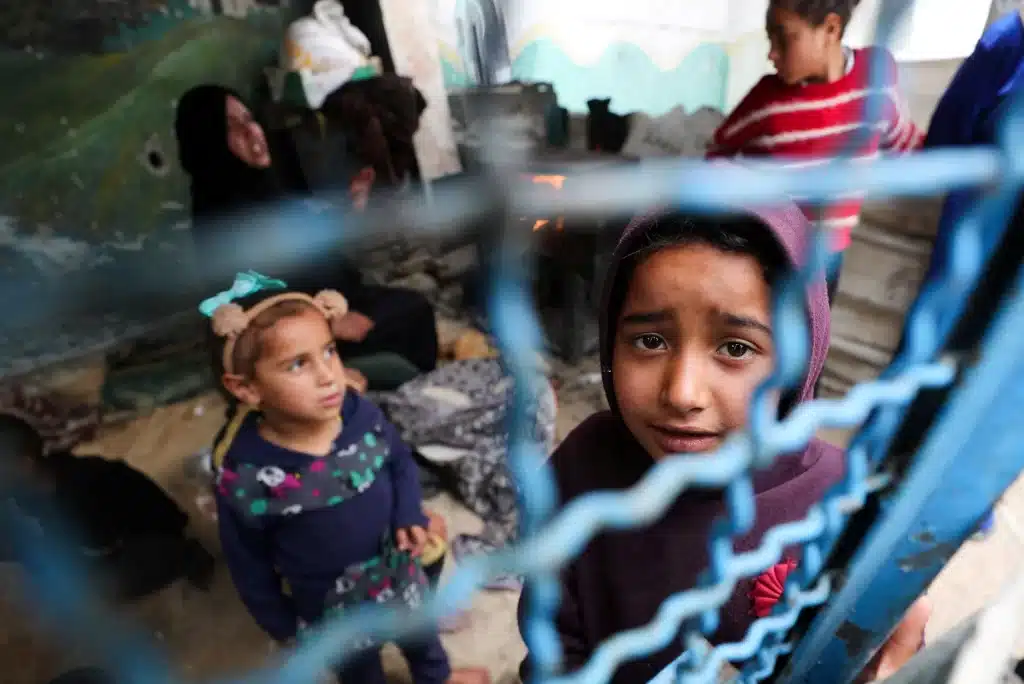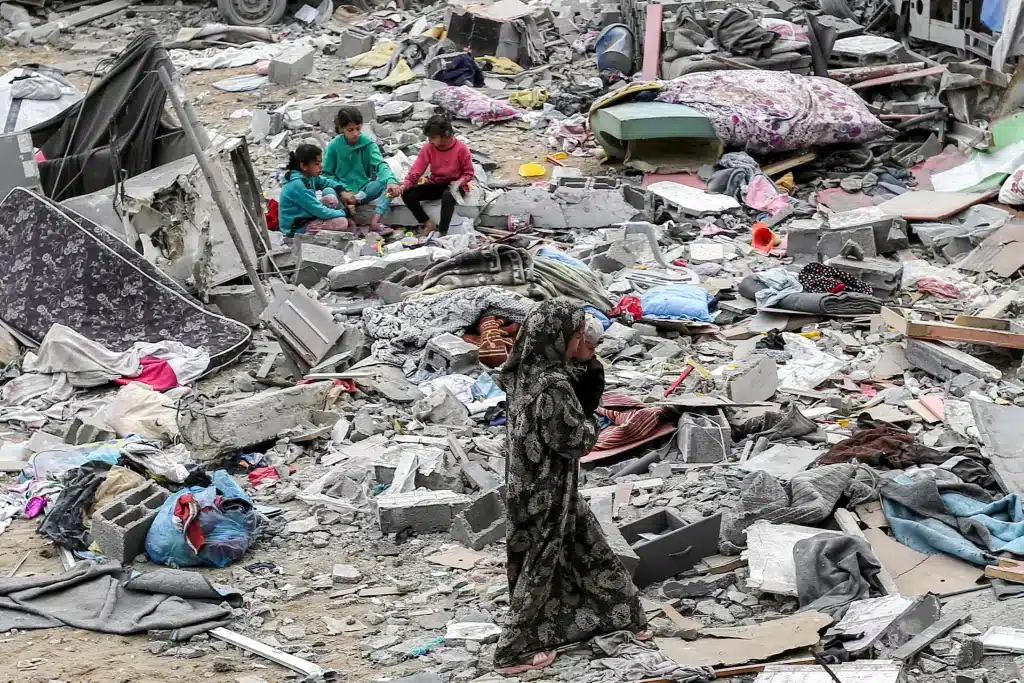Published in Haaretz, April 27, 2025

Feminism has long celebrated the victories of “firsts” – the first woman to lead, to land a spacecraft, to break barriers built by patriarchy. These are not small feats. But what happens when feminism becomes fluent in ambition and silent in agony? What happens when it cannot find the language to speak about women giving birth on floors, grieving over mass graves, boiling weeds to feed their children – simply because they are Palestinian?
I am a feminist. I believe deeply in the power, courage, and necessity of women’s liberation. But I also write as a Palestinian woman, watching a global feminist movement that often soars toward the stars while stepping over the rubble beneath its feet.

In Gaza, women are not asking for boardroom seats or missions to Mars. They are asking for bread. For water. For soap. For a sanitary pad. For their children to wake up in the morning. If our feminism cannot hold space for that reality, if it doesn’t pause to hear the voices under the rubble,then what are we building, and who is it really for?
In one shelter, a mother tore strips from her daughter’s dress to use as menstruation cloths. Another lined her shoes with cardboard, bleeding in silence, so she wouldn’t stain the floor. These are not metaphors – they are Tuesday mornings in Gaza. And yet, too often, they go unspoken in the halls of international feminist solidarity.
Palestinian women are not waiting to be saved. They are teachers, doctors, journalists, poets, caregivers, and protectors of life. Even as their homes collapse, they organize food lines, tell stories, and stitch back whatever pieces of normalcy they can find. Their resistance is not always loud, but it is relentless. To witness that and still speak of “women’s empowerment” without including them – that is not empowerment. That is erasure.
We are told that feminism is about choice. But for many women in Palestine, choice has been stripped away: Not only by patriarchy, but by occupation, war, and the refusal of the world to see us. What is freedom of choice when you cannot choose to bathe your child, to attend school, or to live without fear?

This is not a callout. It is a call-in. A call to a feminism that is not afraid of discomfort. That does not turn its gaze from the blood on the floor because it cannot fit into a sanitized campaign. A feminism that remembers its roots – resistance, solidarity, justice – not just representation.
Because feminism that does not speak when women are starving under siege is not feminism. Feminism that does not weep when girls are pulled from rubble is not feminism. And feminism that cannot name Gaza is not feminism. It’s performance.
So I ask, with love, not blame: Can our global movement stretch wide enough to hold the grief, strength, and truth of Palestinian women? Can it kneel by us, listen to us, stand with us,not because we are flawless, but because we are human?
Because this, too, is where the fight lives. This, too, is where liberation begins.
Nadine Quomsieh,a Palestinian feminist and storyteller, is the Co-Director of the Parents Circle – Families Forum. She lives in Bethlehem.
